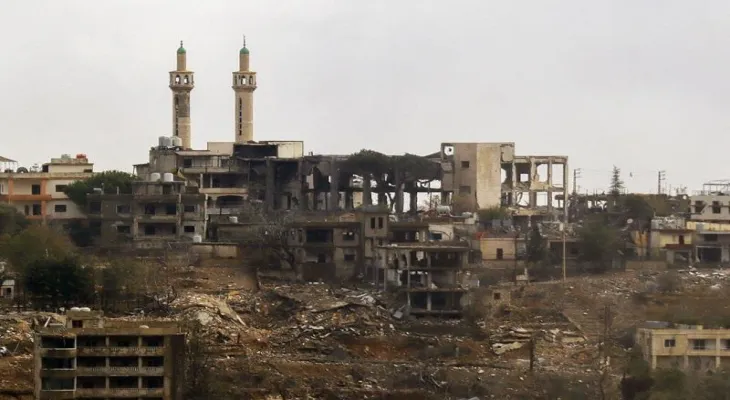Search here
Newspaper
Search here

Arab Canada News
News

Published: November 19, 2024
The American mediator Amos Hochstein conducted intensive talks during his visit to Lebanon, expressing optimism about the possibility of reaching a ceasefire agreement soon between Israel and "Hezbollah".
He noted that the conversations were constructive, emphasizing the existence of a "real opportunity" to end the conflict if diplomatic progress continues with the current momentum.
These statements come amid military escalation in the region, as the United States seeks to calm the situation through mediation involving Lebanese and Israeli parties.
Hochstein discussed in Beirut arrangements for a ceasefire and the possibility of adhering to Resolution 1701, which aims to stabilize the border, but challenges remain related to the demands of both parties, particularly concerning mutual military operations and security guarantees.
On the other hand, Israeli reports indicated that Prime Minister Benjamin Netanyahu considers ending the conflict a vital necessity, but he faces difficulties in achieving significant military objectives, such as targeting leaders of "Hezbollah" amid the developments in the conflict.
The talks conducted by American mediator Amos Hochstein in Lebanon focus on calming the tense situation between "Hezbollah" and Israel.
These efforts aim to reach a ceasefire agreement that addresses border violations and respects international resolutions, particularly Resolution 1701, which regulates the situation along the Lebanese-Israeli border.
Key points related to the developments:
1. Hochstein's optimism: The American envoy described the talks as constructive, indicating the presence of a real opportunity to end the conflict if diplomatic efforts continue intensively. Hochstein met with Lebanese officials, including Prime Minister Najib Mikati, to discuss mechanisms for de-escalation and restoring stability.
2. The Israeli stance: Reports indicate that Israel sees the necessity of calming tensions with "Hezbollah" but without making major concessions, amid fears of military escalation in the event of failed talks. Israeli Prime Minister Benjamin Netanyahu considers achieving a ceasefire strategically important, but he is facing internal pressure with increasing attacks from both the Lebanese and Gaza fronts.
3. Ongoing challenges:
• Military escalation is still ongoing on the ground, with mutual shelling across the border.
• "Hezbollah's" demands for guarantees against targeting its leaders or bases.
• Israeli demands for the evacuation of specific areas in the southern suburb, which is considered a major point of contention.
4. American support: Washington is focusing on its role as a mediator, not only in this conflict but also in issues related to the conflict in Gaza.
U.S. Secretary of State Antony Blinken emphasized the importance of improving the humanitarian situation alongside working to ensure Israel's security, which reflects on the course of the talks in Lebanon.
Next steps:
Diplomatic efforts are expected to continue in the coming days with intensified communication between Beirut and Tel Aviv through American channels. Hochstein is also expected to present a report on the progress of the talks to the Security Council, which will discuss the developments in the region.
Comments